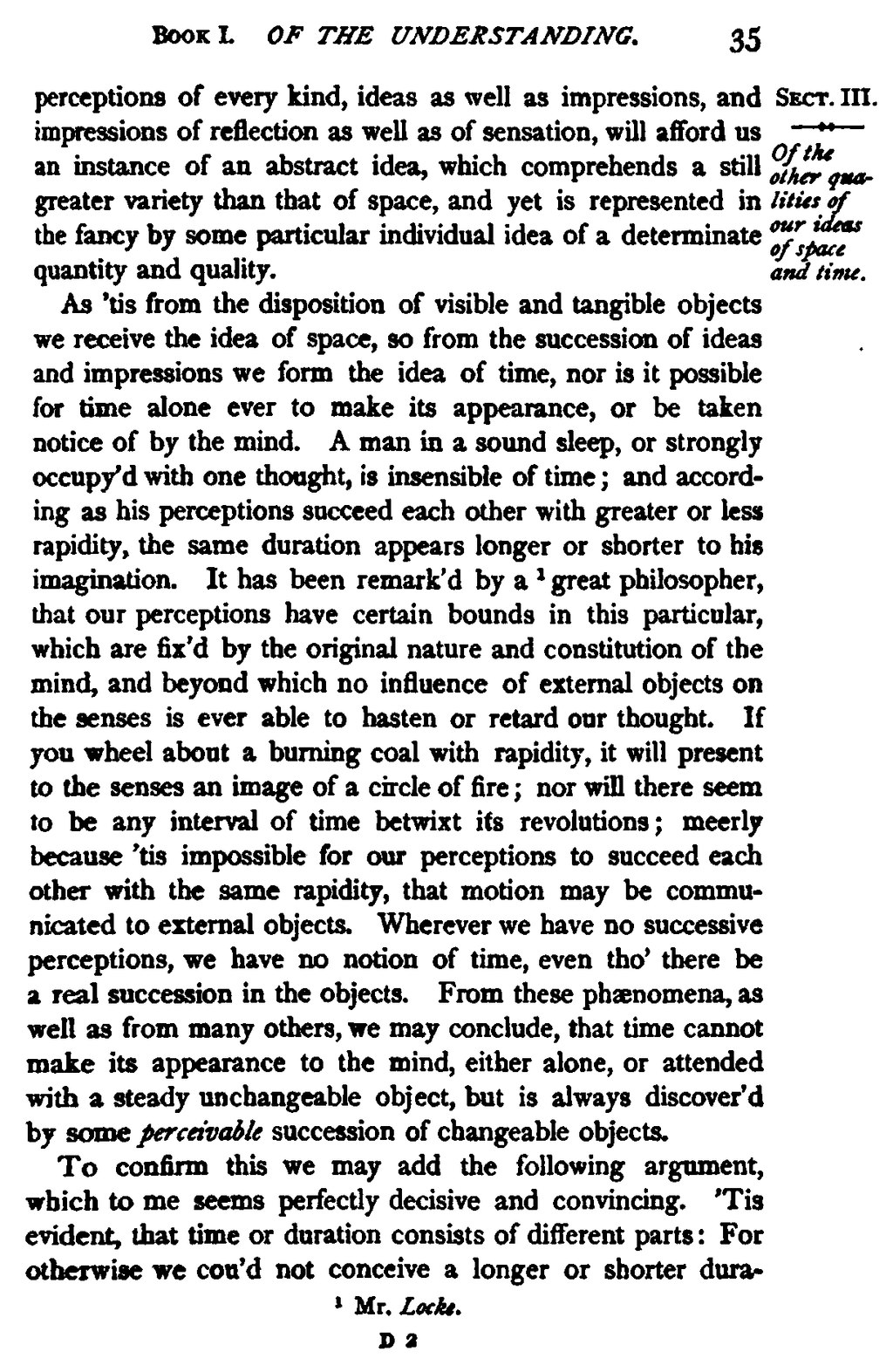perceptions of every kind, ideas as well as impressions, and impressions of reflection as well as of sensation, will afford us an instance of an abstract idea, which comprehends a still greater variety than that of space, and yet is represented in fancy by some particular individual idea of a determinate quantity and quality.
As 'tis from the disposition of visible and tangible objects we receive the idea of space, so from the succession of ideas and impressions we form the idea of time, nor is it possible for time alone ever to make its appearance, or be taken notice of by the mind. A man in a sound sleep, or strongly occupy'd with one thought, is insensible of time; and according as his perceptions succeed each other with greater or less rapidity, the same duration appears longer or shorter to his imagination. It has been remark'd by a [1]great philosopher, that our perceptions have certain bounds in this particular, which are fix'd by the original nature and constitution of the mind, and beyond which no influence of external objects on the senses is ever able to hasten or retard our thought. If you wheel about a burning coal with rapidity, it will present to the senses an image of a circle of fire; nor will there seem to be any interval of time betwixt its revolutions; meerly because 'tis impossible for our perceptions to succeed each other with the same rapidity, that motion may be communicated to external objects. Wherever we have no successive perceptions, we have no notion of time, even tho' there be a real succession in the objects. From these phænomena, as well as from many others, we may conclude, that time cannot make its appearance to the mind, either alone, or attended with a steady unchangeable object, but is always discover'd by some perceivable succession of changeable objects.
To confirm this we may add the following argument, which to me seems perfectly decisive and convincing. 'Tis evident, that time or duration consists of different parts: For otherwise we cou'd not conceive a longer or shorter dura-
- ↑ Mr. Locke.
